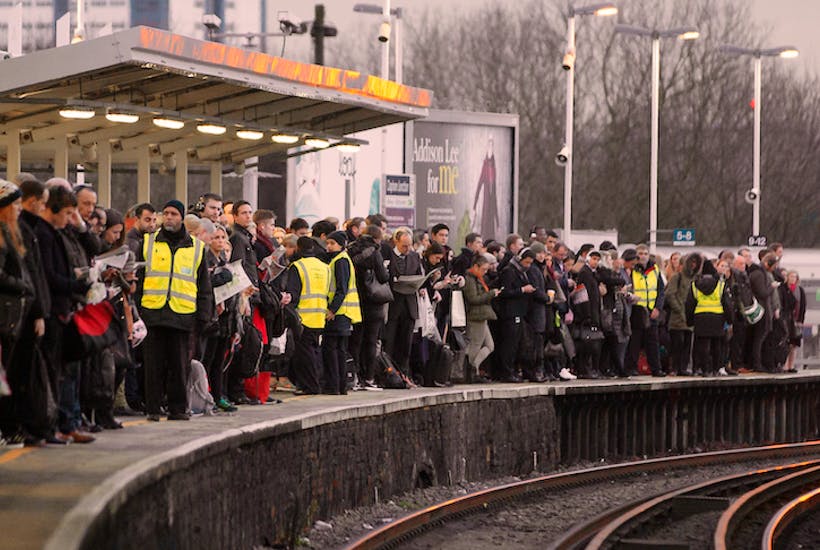Jeremy Corbyn likes to say that he ‘won the argument’ at the last general election, where he argued – amongst other things – for the re-nationalisation of the railways. It was a popular policy. Today, as if on cue, the government announced that Northern Rail is being taken into public ownership, stripping Arriva Rail North of the franchise. So what’s going on? Should we now regard rail privatisation as a failure?
For a start, we don’t have privatised rail. We have a hybrid system created under John Major, with private firms running (but not owning) the trains, and a notorious state-run Network Rail owning the track – its failures are responsible for most delays on the entire UK rail network. Each train franchising deal is different; some work well, others not so much. Arriva accepts it did not invest quickly enough to improve services for commuters in Nottingham or Northumberland (and failed to replace extremely outdated carriages). So, yes, it failed. But privatisation has not.
The wider story of increased privatisation in rail is a good one. The drop in rail journeys when the service was nationalised in 1948 is just as staggering as the increase in journeys since privatisation. Journeys plummeted far below one billion per year during the period of state ownership, sharply rising after privatisation in 1995, reaching over 1.7bn journeys in 2018-19.
Recent increases in rail costs aren’t popular, to be sure – but are they such a bad thing either? They haven’t inhibited use. If anything, they’ve created a more progressive system in which rail users (who are on average wealthier than non-rail users) actually pay the cost of their journey, rather than having it subsidised by taxpayers’ money contributed by lower-paid people, bus or road users earning the minimum wage.
The Tories ought not to throw out the advantages of UK rail privatisation – nor should we expect a fat controller in Whitehall to improve how Northern Rail is run. The Government is already warning commuters not to get their hopes up for better service, likely recognising the other (state-run) factors at play, which will be just as much of a headache for public officials to deal with as it was for Arriva reps. As the IEA’s Prof Len Shackleton notes, in addition to running Northern Rail, Arriva runs two of the most successful rail services in Britain – Chiltern Railways and Grand Central – suggesting the reasons for Northern Rail’s failure go far deeper than bad private management.
The complexities of the UK’s rail systems make it difficult to pin down any one failing area. Yes, private companies have had their problems – but addressing the state-run side of transport will be just as important for speeding things up.







Comments